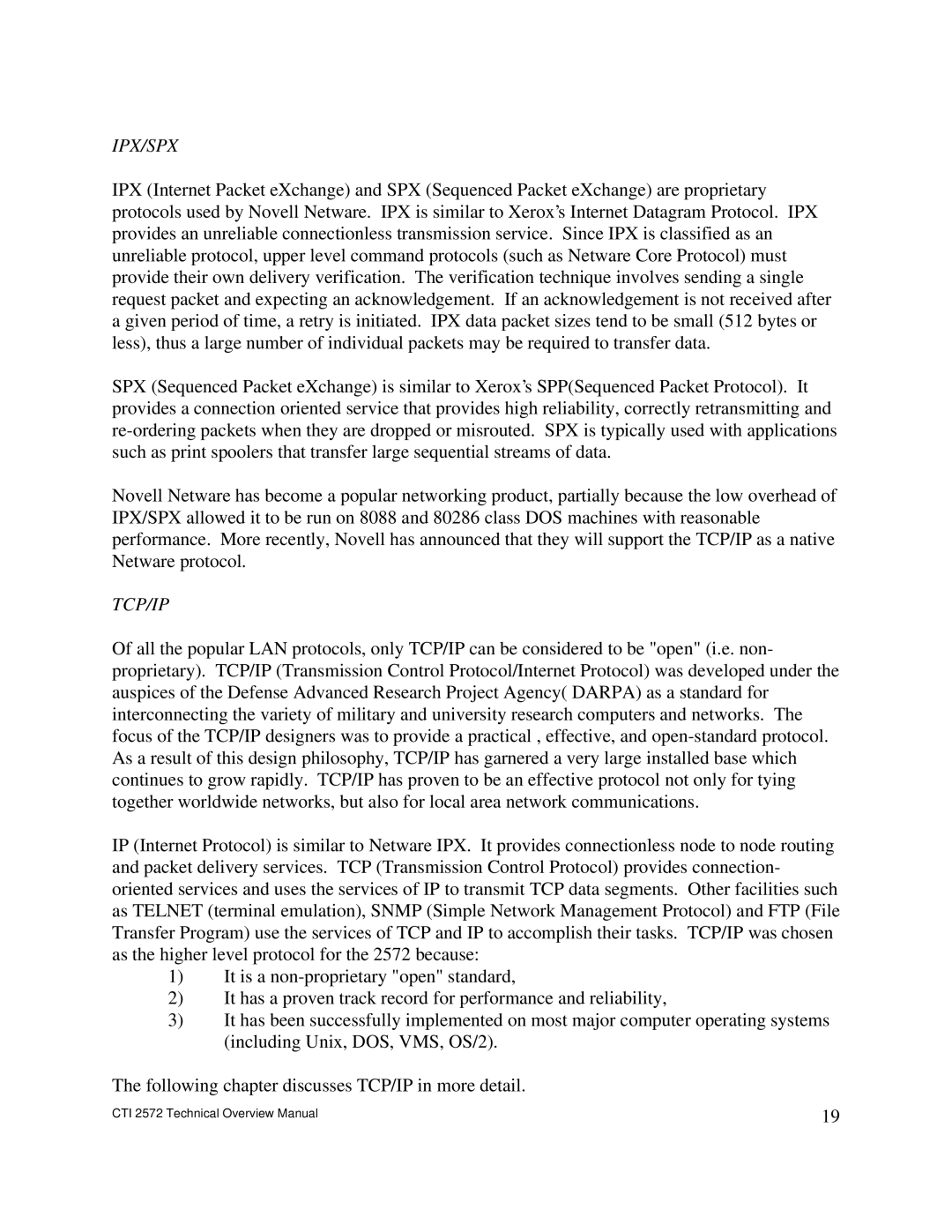IPX/SPX
IPX (Internet Packet eXchange) and SPX (Sequenced Packet eXchange) are proprietary protocols used by Novell Netware. IPX is similar to Xerox’s Internet Datagram Protocol. IPX provides an unreliable connectionless transmission service. Since IPX is classified as an unreliable protocol, upper level command protocols (such as Netware Core Protocol) must provide their own delivery verification. The verification technique involves sending a single request packet and expecting an acknowledgement. If an acknowledgement is not received after a given period of time, a retry is initiated. IPX data packet sizes tend to be small (512 bytes or less), thus a large number of individual packets may be required to transfer data.
SPX (Sequenced Packet eXchange) is similar to Xerox’s SPP(Sequenced Packet Protocol). It provides a connection oriented service that provides high reliability, correctly retransmitting and
Novell Netware has become a popular networking product, partially because the low overhead of IPX/SPX allowed it to be run on 8088 and 80286 class DOS machines with reasonable performance. More recently, Novell has announced that they will support the TCP/IP as a native Netware protocol.
TCP/IP
Of all the popular LAN protocols, only TCP/IP can be considered to be "open" (i.e. non- proprietary). TCP/IP (Transmission Control Protocol/Internet Protocol) was developed under the auspices of the Defense Advanced Research Project Agency( DARPA) as a standard for interconnecting the variety of military and university research computers and networks. The focus of the TCP/IP designers was to provide a practical , effective, and
IP (Internet Protocol) is similar to Netware IPX. It provides connectionless node to node routing and packet delivery services. TCP (Transmission Control Protocol) provides connection- oriented services and uses the services of IP to transmit TCP data segments. Other facilities such as TELNET (terminal emulation), SNMP (Simple Network Management Protocol) and FTP (File Transfer Program) use the services of TCP and IP to accomplish their tasks. TCP/IP was chosen as the higher level protocol for the 2572 because:
1)It is a
2)It has a proven track record for performance and reliability,
3)It has been successfully implemented on most major computer operating systems (including Unix, DOS, VMS, OS/2).
The following chapter discusses TCP/IP in more detail.
CTI 2572 Technical Overview Manual | 19 |
